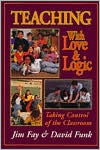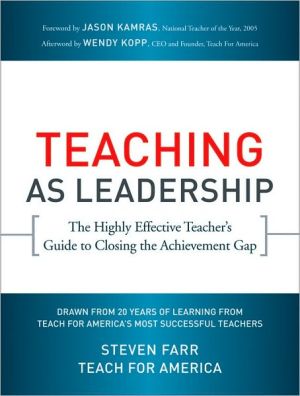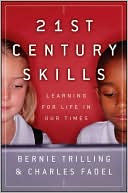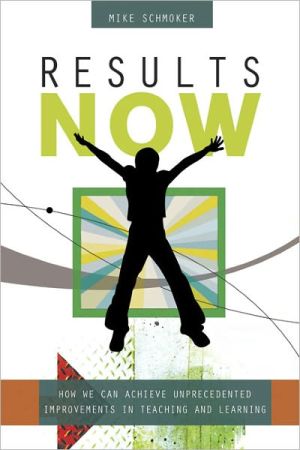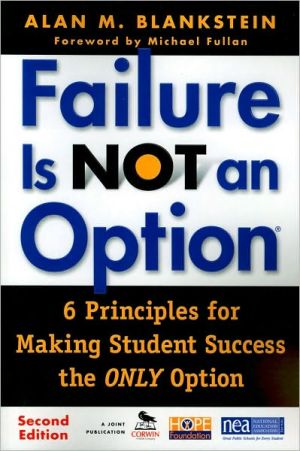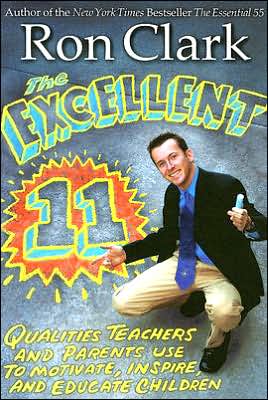Doing School: How We are Creating a Generation of Stressed-Out, Materialistic, and Miseducated Students
This book offers a revealing -- and troubling -- view of today's high school students and the ways they pursue high grades and success. Veteran teacher Denise Pope follows five highly regarded students through a school year and discovers that these young people believe getting ahead requires manipulating the system, scheming, lying, and cheating. Named by American School Board Journal as a Notable Book in Education.
Search in google:
This book offers a revealing -- and troubling -- view of today's high school students and the ways they pursue high grades and success. Veteran teacher Denise Pope follows five highly regarded students through a school year and discovers that these young people believe getting ahead requires manipulating the system, scheming, lying, and cheating. Named by American School Board Journal as a Notable Book in Education. Nell Noddings A powerful, well-written book. . . . deeply affecting.
\ \ Chapter One\ \ \ Welcome to Faircrest High\ \ \ Faircrest High School's values: Be punctual, prepared, tolerant, honest, respectful, responsible.\ —posted on a sign in a FHS classroom\ \ \ "I wish I could have a class full of students like Eve," says the chair of the history department, describing one of his "ideal" pupils. Eve has a 3.97 grade point average. She is ranked in the top 10 percent of her class and is enrolled in every honors and advanced placement level course available to her. Her résumé lists more than 25 school activities in which she has participated since her freshman year, ranging from field hockey and symphonic band to student council, Spanish club, and Junior Statesmen of America.\ Another teacher recommends Kevin. He is well known at the school because of his friendly personality, his high grades, and his star performance on the school soccer team. For the past two years he has led a student-run community service project that delivers school supplies and clothing to less privileged children in neighboring towns. He takes classes from both the college preparatory track as well as the honors track, and he is in the highest possible courses for his grade level in three subject areas: English, history, and French. "He is so smart and such a nice boy," says the PE teacher, "if I had a son, I would want one like him."\ Other names come up multiple times. Michelle, an exceptional drama and music student, is recommended for her acting performances, her top grades, and her enrollment in a special program called The Community Project. Teresa is an outstanding student in the new business theme house, excelling in business computing skills. She impresses teachers by her desire to "challenge" herself and her commitment to the Mexican Student Association. Finally, there is Roberto, who hopes to be the first in his immediate family to attend college. He is recommended for his diligence and dedication to this goal, as well as his successful record in a seminar course in which he was awarded the Coordinator's Commendation for Excellence.\ "These students represent some of our best and brightest," a guidance counselor notes with pride. "They are good kids who work hard and do well. Actually, I could name many others just like them, but you only need five." Such was my introduction to Faircrest High.\ I chose to study students at Faircrest because of its excellent reputation. The school, located in a wealthy California suburb, has one of the lowest dropout rates in the state, small class sizes, and a "long-standing tradition of hiring the best teachers to provide the highest quality instruction." The school's annual report lists college acceptance rates, scholastic aptitude test results, and the number of students commended for National Merit distinction, all of which rank Faircrest well above the state average. More than one-third of the student body is enrolled in honors and advanced placement (AP) courses, and many of these students "get accepted to universities such as Stanford, Harvard, [and] Yale."\ Evidence of student success is everywhere. Teachers announce awards over the loudspeaker each morning: "Congratulations to Mr. Parker's class and the three winners of the state math competition ... [names are read aloud]. Overall, Faircrest came in second, just behind Alpine School this year. Let's come in first next time!" The school sends dozens of letters home congratulating students who maintain 4.0 averages each semester. Teachers post the best essays and test results on classroom walls, hanging banners with the names of students who earned perfect scores on advanced placement exams from the past ten years. And each month, every department honors an outstanding student, posting his or her photo on a central bulletin board and listing the names in the yearbook. In publications, on the walls, and over the loudspeakers, Faircrest's top students are impressive. They are articulate, focused, multitalented, and industrious. They are the pride of the public education system and the hope for the future.\ Listen to the students, though, and you'll hear a different side of success. To keep up her grades, Eve sleeps just two to three hours each night and lives in a constant state of stress. Kevin faces anxiety and frustration as he attempts to balance the high expectations of his father with his own desire to "have a life" outside of school. Michelle struggles to find a way to pursue her love for drama without compromising her college prospects. And both Teresa and Roberto resort to drastic actions when they worry that they will not maintain the grades they need for future careers. All of them admit to doing things that they're not proud of in order to succeed in school.\ These students explain that they are busy at what they call "doing school." They realize that they are caught in a system where achievement depends more on "doing"—going through the correct motions—than on learning and engaging with the curriculum. Instead of thinking deeply about the content of their courses and delving into projects and assignments, the students focus on managing the work load and honing strategies that will help them to achieve high grades. They learn to raise their hands even when they don't know the answers to the teachers' questions in order to appear interested. They understand the importance of forming alliances and classroom treaties to win favors from teachers and administrators. Some feel compelled to cheat and to contest certain grades and decisions in order to get the scores they believe they need for the future. As Kevin asserts:\ \ \ People don't go to school to learn. They go to get good grades which brings them to college, which brings them the high-paying job, which brings them to happiness, so they think. But basically, grades is where it's at.\ \ \ Values normally espoused in schools, such as honesty, diligence, and teamwork, necessarily come into question when the students must choose between these ideals and getting top grades. It is hard to be a team player when you are competing with peers for an A grade on the class curve. It is difficult to remain honest when so much in school depends on appearing alert and prepared, and when there is too much work to do and too little time in which to do it. The workload is so great and the expectations so high that these students feel obligated to give up recreation and sleep time as well as many aspects of a social life in order to succeed. Eve explains: "All year I sat and stared at the names on the banner in my history class, and it became my entire goal; ... I swore I would get my name up there if it killed me." Her devotion to success eventually earns her a spot on the history advanced placement banner. And though the pressure to succeed does not "kill" her, it does make her physically ill. She, like the others, has learned to do "whatever it takes" to get ahead, even if this means sacrificing "individuality, health, and happiness"—not to mention compromising ethical principles.\ These students regret the frenetic pace of their school days and the undue stress they endure. They do not like manipulating the system or compromising their beliefs and values by kissing up, lying, and cheating. But they also do not like what they see as the alternative. They believe job prospects and income are better for college graduates, especially for those who earn credentials from prestigious universities. Lower grades and test scores might jeopardize future wealth and well-being. Hence, the students are victims of what I call the "grade trap." They feel bound by a narrow definition of success and resigned to a system in which ultimate satisfaction may not be attainable.\ To their teachers, administrators, parents, and community, these students represent the "ideal." They are motivated to get ahead and work hard to achieve high grades. They participate in extracurricular activities, serve their communities, earn numerous awards and honors, and appear to uphold the values posted on the walls of the Faircrest classrooms. This book examines the behavior behind the success. The chapters, written as individual portraits, offer an inside view of the complexity of student life as well as the persistent dilemmas faced by everyone in the school system.\ \ \ Although Faircrest High, along with most schools, claims to value certain character traits such as honesty and respect, the student experiences in the competitive academic environment reflect the conflicting goals inherent in the educational system today. As you read about the students—whose stories may resonate with "successful" high school students throughout this country—ask yourself the following questions: What kind of behavior is fostered by the expectations of the school community and by those outside of the school? Can students meet these expectations without sacrificing personal and academic goals and beliefs? Can parents encourage their children to strive for future success without pushing too hard or advocating questionable behavior? What can school teachers and administrators do in light of the constraints of college admission requirements and national education policies that spur competition for high grades and test scores? Are we fostering an environment that promotes intellectual curiosity, cooperation, and integrity, or are our schools breeding anxiety, deception, and frustration? Are they impeding the very values they claim to embrace? Are we preparing students well for the future? Are they ready for the world of work? Are they ready to be valuable members of our society? And is this the kind of education to which we as a nation should aspire?\ Listen to the voices of these five students.\ \ \ Excerpted from "Doing School" by Denise Clark Pope. Copyright © 2001 by Denise Clark Pope. Excerpted by permission. All rights reserved. No part of this excerpt may be reproduced or reprinted without permission in writing from the publisher. \ \ \ \
PrefaceXIAcknowledgmentsXV1Welcome to Faircrest High12Kevin Romoni: A 3.8 Kind of Guy7Pleasing Dad: The "Good" StudentGetting Furious: The CompetitorMotivated By Passion: The Engaged Learner3Eve Lin: Life as a High School Machine29"Going for the Maximum"Survival of the FittestEnjoying the Process4Teresa Gomez: "I Want a Future"50Dancing as Engagement"Wanting More": The Search for Engagement5Michelle Spence: Keeping Curiosity Alive?81An Alternate Course"Sacrificing Academics"Learning by Doing What You Love6Roberto Morales: When Values Stand in the Way117DiligenceAnxietyPlaying by the RulesStress"Fun"7The Predicament of "Doing School"149"Doing School"The Grade TrapConstraints of the School SystemWe Get What We Bargain For"If Only Things Could Be Different"Epilogue176Appendixes187A.General Information about the Students in the StudyB.Common Student Behavior Exhibited in Pursuit of SuccessNotes189References207
\ Nell NoddingsA powerful, well-written book. . . . deeply affecting.\ \ \ \ \ Publishers WeeklyBy and large, the recent focus on American education has been on the shortcomings of our worst schools. Pope, a lecturer at the Stanford University School of Education, zeroes in on a well-regarded California public high school and explores "the educational experience" from the students' points of view. Her year-long shadowing of five intelligent, motivated students from diverse backgrounds raises the troubling proposition that even our best schools may be misserving our best students, and reveals the ambiguous nature of our successes. Devoting a detailed chapter to the school lives of each student, Pope asks two important questions: "What exactly is being learned in high schools like Faircrest? And at what costs?" The answers are dismaying. Students learn that getting A's is of supreme importance, and that it is sometimes more advantageous to be "system savvy" than it is to actually learn the material. Still, Pope's five subjects work hard at grueling routines, sacrificing sleep and social lives to the desire to succeed. The costs of their achievements, she suggests, are "severe anxiety or breakdowns," "persistent health or sleep problems" and ethical compromise in the conflict between these students' ideals and values and the grade-grubbing, self-serving alliances with adult advocates and (usually subtle) cheating they deem necessary to success. A scholarly study presented with great clarity and enlivened by vignettes of student life, this work provides a fresh perspective on the state of American education, and yet another reason to press for systematic reform. (Oct.) Copyright 2001 Cahners Business Information.\ \ \ Library JournalIn this important and timely study, Pope, a veteran teacher, curriculum expert, and lecturer at the Stanford University School of Education, offers a revealing look at the quandaries of today's high school students. The book is based on Pope's yearlong research, which consisted of shadowing and interviewing five successful students of diverse ethnic and socioeconomic backgrounds at a highly regarded California public high school. Pope adroitly takes the students' point of view and finds that they are frustrated by being caught in a "grade trap"; often stressed out, exhausted, and anxious, they are resentful that their future success is dependent on their GPA and test scores. These and similar findings raise critical questions for concerned parents, educators, and policy makers involved in all levels of education, making this an essential purchase for high school, college, and university libraries and one strongly recommended for public libraries where interest in education is strong.-Samuel T. Huang, Univ. of Arizona, Tucson Copyright 2002 Cahners Business Information.\ \


